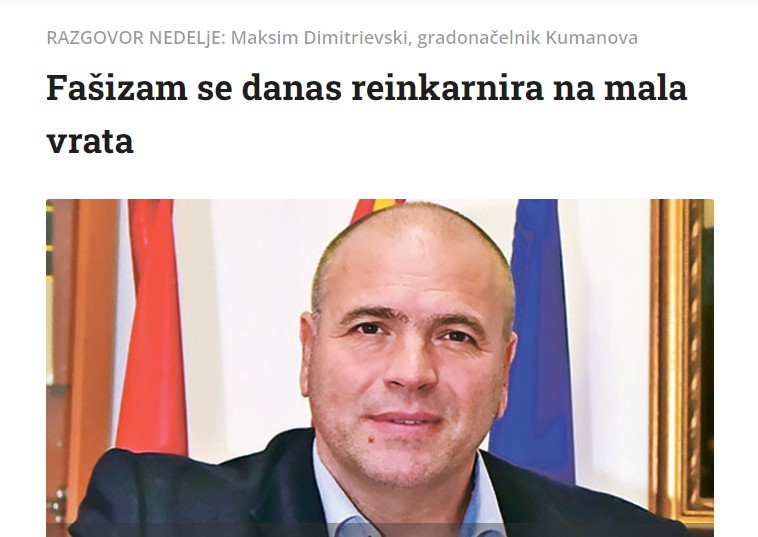The mayor of Kumanovo Municipality, Maksim Dimitrievski, in an interview with the Serbian newspaper “Politika”, emphasized that the Battle of Kumanovo played a major role in the liberation of the Balkans from the centuries-old Turkish rule and may be a key step in the expulsion of the Ottoman Empire from the European continent. Within the Serbian army, around 6,000 Macedonians contributed to the victory in this battle.
Citizens from a large number of ethnic communities live in Kumanovo, and the Serbian one is also strongly represented. As the mayor of the municipality, I consistently try to respect all important dates, historical and religious events and traditional values of the Serbian people, but also the values of all other ethnic communities, Dimitrievski points out.
Dimitrievski says that Serbia and Macedonia have traditionally good relations, the two nations are very close, and they help each other, respect, and cooperate.
Of course, a large part of family ties between the two peoples contributed to this relationship, but also the historical fact that for almost 5 decades we were part of a common state, part of the anti-fascist coalition. Finally, good connections and relations are not the result of politics alone but are primarily the result of mutual respect, love and the built-up emotions between our peoples, emphasizes Dimitrievski.
In the interview, Dimitrievski points out that in recent years, Macedonia has been under attack and provocation from Bulgaria, which continuously tries to deny the existence of the Macedonian language, history, identity and culture.
During the Second World War, Macedonia was in the anti-fascist alliance, led by the partisan units headed by Josip Broz Tito, giving their contribution and sacrifices for the victory over fascism. My city gave more than eight hundred and fifty victims in that struggle while the then government in Bulgaria was part of the coalition with Nazi Germany and was the occupier in Macedonia. Unfortunately, today, with the opening of the so-called Bulgarian clubs in Macedonia that bear the names of Hitler’s partners and collaborators, fascism is really being promoted and reincarnated behind closed doors, he says.
According to Dimitrievski, this continuous denial of Macedonianism by Bulgaria is due to the weak government in Macedonia. He also mentions the scandalous interview of Zoran Zaev in which the former prime minister and leader of the party from which Dimitrievski himself came, says that the same people live in Bulgaria and Macedonia, and that his Kumanovo in WWII was liberated from the Bulgarian federal army.
This nonsense hurt me personally because I come from a partisan family, my grandfathers were participants in the war, emphasized Dimitrievski.




Comments are closed for this post.